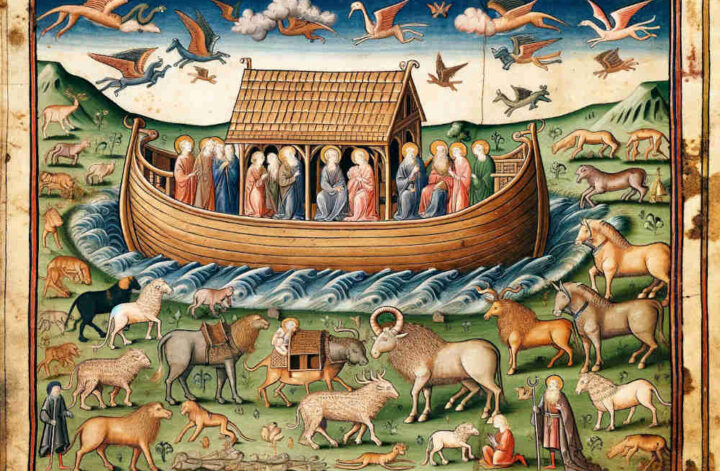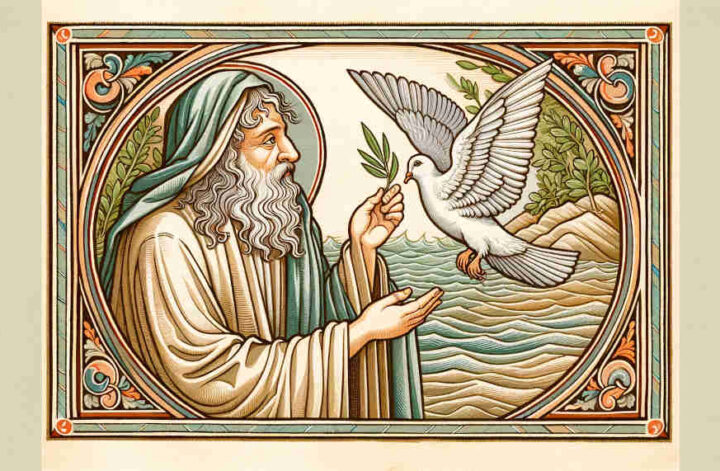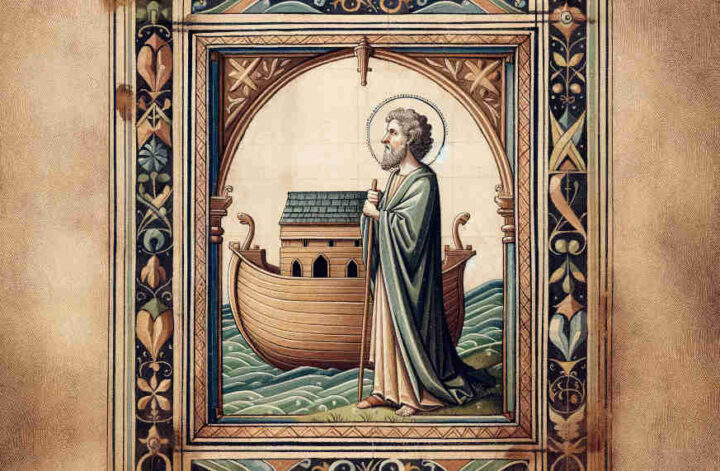Email from a reader: “Dear Rabbi Joshua, As someone interested in Noahidism, I’m curious about its perspective on the Torah’s flood story. Do Noahides believe the flood actually happened as described? Was Noah a real person? Sincerely, Elizabeth Morgan”
Dear Elizabeth,
Your question delves into the heart of how the Noahide tradition views the narratives of the Torah, particularly the story of Noah and the flood.
The Flood Story in Noahidism:
Firstly, it’s essential to understand that Noahidism is based on the Seven Laws given to Noah, which are universal and not dependent on the Jewish people’s specific covenant with God. The story of Noah and the flood, as narrated in the Torah, holds significant importance in Jewish tradition as an account of divine intervention, justice, and mercy.
For Noahides, belief in the historical accuracy of the flood story varies. Some Noahides view the narrative as a literal historical event, believing that Noah was a real person and the flood occurred as described. This view is often intertwined with a perspective that sees the Torah as a source of both spiritual and historical truth.
On the other hand, there are Noahides who interpret the story allegorically or symbolically. In this view, the narrative of Noah and the flood serves as a profound moral and ethical lesson rather than a literal historical account. The emphasis is on the teachings derived from the story, such as the importance of righteousness, the consequences of moral decay, and the potential for renewal and redemption.
Diversity of Belief Among Noahides:
It’s important to recognize that Noahidism, while rooted in Torah principles, does not require a uniform belief in the literalness of every Torah narrative. Noahides come from diverse backgrounds and cultures, bringing with them various interpretations and understandings of these stories. What unites them is a commitment to the Seven Noahide Laws and a shared respect for their ethical and moral teachings.
The story of Noah and the flood, whether viewed as historical fact or allegorical teaching, underscores themes that are central to Noahidism – the value of righteousness, the importance of ethical living, and the belief in a just and merciful God.
Elizabeth, your inquiry reflects a thoughtful engagement with the Noahide path. Whether you come to see the story of Noah as historical fact or allegorical teaching, the key is to draw from it the timeless lessons that can guide your ethical and spiritual journey.
Warm regards,
Rabbi Joshua


